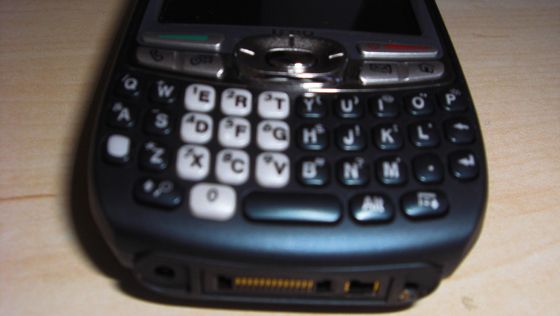- Select a language for the TTS:
- UK English Female
- UK English Male
- US English Female
- US English Male
- Australian Female
- Australian Male
- Language selected: (auto detect) - EN
Play all audios:
CLAIM: Thieves can steal ATM cards and PINs by using plastic sleeves known as "Lebanese loops." STATUS: _TRUE._ EXAMPLES: _[Collected via e-mail, 2001]_ For all of you who
use HSBC or an ATM. Just wanted to warn you about something that happened to me the other day. I was getting some cash out at the cash point outside at HSBC - Saint George Street, Hanover
Square. I put my card in and a message came up on the screen saying the machine was temporarily out of order. A lady approached me and told me that this had happened to her the other day and
what I needed to do was key my pin number in and then press cancel twice. I did this and of course no card was returned. I left the machine thinking that it had swallowed my card. But when
I returned to HSBC the following morning, my card wasn't there. According to the police this method of stealing bankcards is called the "Lebanese loop". A plastic envelope is
made up that fits the hole in the machine perfectly. When you put your card in, the machine knows it is there but cannot read it and therefore the message comes up on the screen. Once the
pin number has been given away and the card left in the machine, it is then 'looped' out and the spending starts! I had 500 taken from my account before I realized what had
happened and cancelled it. The women who approached me at the cash point was late 40's in age, 5.3 in height, dark hair and eyes. The way she was dressed was smart as if she had just
left work. Please pass this information on to all your friends. ------------------------- _[Collected via e-mail, 2002]_ The Association of Chief Police Officers ATM Working Group has asked
that the following information be circulated: For your information, please be advised of the following ATM scam: Beware the next time you use an ATM. Criminals are inventing ever more
ingenious methods of relieving you of your cash. The latest scam involves thieves putting a thin, clear, rigid plastic 'sleeve' into the ATM card slot. When you insert your card,
the machine can't read the strip, so it keeps asking you to re-enter your PIN number. Meanwhile, someone behind you watches as you tap in your number. Eventually you give up, thinking
the machine has swallowed your card and you walk away. The thieves then remove the plastic sleeve complete with card, and empty your account. The way to avoid this is to run your finger
along the card slot before you put your card in. The sleeve has a couple of tiny prongs that the thieves need to get the sleeve out of the slot, and you'll be able to feel them. The
police would like as many people as possible to be aware of this scam, so pass this on to your family and friends. ------------------------- _[Collected via e-mail, 2002]_ Thieves are
putting a thin clear, rigid plastic "sleeve" into the ATM card slot. When you insert your card, the machine can't read the strip so, it keeps asking you to re-enter your pin
number. Meanwhile, someone behind you watches as you enter and re-enters your number. Eventually you give up, thinking the machine has captured your card and walk away. The thieves then
remove the plastic sleeve complete with card, and empty your account. The way to avoid this is to run your finger along the card slot before you put your card in. The sleeve has a couple of
tiny prongs that the thieves need to get it out of the slot, and you will be able to feel them. The police would like as many people as possible to be aware of this scam, so please pass this
information on to your friends and family. ORIGINS: The tale of woe contained in the first example quoted above surfaced on the Internet in much lengthier form in January 2000. At that
time, the 'Lebanese loop' theft was said to have taken place at a Chase Manhattan ATM in Houston at the "Kirby location between Richmond and Alabama" with the swindled
customer instructed by way of a small hand-lettered sign taped to the machine to enter his PIN, hit 'Enter,' and repeat if the card was retained. A greatly shortened version began
its Internet life in April 2001. This time the cardnapping was said to have occurred at "the Ulster Bank cash point on O'Connell's Street," a location that placed the
action in Dublin, Ireland. It included a "helpful" woman who provided advice about entering and re-entering the PIN if the card was retained. This warning was quickly morphed into
the current version (quoted above as our "Example" text) which puts the theft in Australia and, other than the bank information and sometimes a dollar sign before the 500, is
word-for-word the same as the Dublin warning. What to make of all this? First of all, disabuse yourself of the notion that anyone whose name appears at the base of the missive is the one who
wrote it — as the HSBC in Melbourne discovered when it looked into the matter and tracked down two of these apparent signatories, both had inadvertently left their names on the e-mail when
copying it to friends. This oversight has resulted in their receiving numerous inquiries about the warning. The real author was always anonymous and is long gone. Second, although the e-mail
is suspect, the type of theft it warns ATM users to be wary of is _possible_. There are two forms of the "Lebanese loop," both of which can net a card thief your ATM card and your
PIN, a combination known to be deadly to one's bank account. (Not _all_ ATMs — particularly more recent models — can be fooled through this technique, however.) In one method, a
laminated card is placed over the ATM's video screen and a device inserted into the card slot to disable that mechanism. On the laminated card are printed instructions to enter
one's PIN three times. The thief then hangs about to shoulder surf the victim ("shoulder surfing" being the term for "watching what number that person taps onto the
keypad"). A customer arrives and loses his card to the machine (and his PIN, because that was picked off by the eagle-eyed thief, but he's not yet aware of this turn of events).
Once he realizes the cashpoint will not be giving his card back, he will go into the bank, leaving the thief to quickly close upon the machine, remove the card-retaining device (which now
contains the card), and make his getaway. In another, a "helpful" stranger or two take the place of the fake sign, quickly volunteering the information that the evil machine held
their cards captive until they hit upon entering their PINs over and over. It's a rare pigeon indeed who won't immediately act upon this freely-offered advice and take a shot at
trying to get the ATM to release his own card by punching in his PIN again and again. But of course the "helpful" stranger(s) are now busy memorizing this code and will quickly
scoop up the blocking device and the trapped card as soon as the victim goes off to seek help from bank personnel. How can an ATM user protect himself from this sort of theft? * Always
shield your PIN from prying eyes. Use your body to block anyone's view of the keypad, or cup your non-keying hand over the pad as you use it. Do this whether you're at an ATM, a
gas pump, or inside a store. (Rigging the machine to trap your card is not the only way a thief can steal your plastic. And keep in mind that scammers need your PIN to make your card work,
so guard your PIN carefully.) * Don't use an ATM if people insist upon standing around it. Politely ask them to move aside, and if they refuse, go somewhere else. * Don't use any
ATM that appears to be out of the ordinary. Turn up your nose at cashpoints sporting signs affixed to the machines or instruction screens asking you to do things that don't seem right
(such as entering your PIN multiple times). Report these discrepancies immediately to the bank in question or the police. * Get into the habit of using the same ATM for almost all of your
transactions so as to better recognize when something is different with the machine. Be wary of any changes you see on its outside. If the ATM is affixed to a bank, walk in and ask why the
changes were made. * Never take advice from "helpful" strangers about how to get your card back if an ATM keeps it. Report a machine-trapped card to your bank as soon as possible
so that the card can be deactivated if it is was not kept for legitimate reasons. Although the e-mailed alert is an instance of rampant netlore (no author, the details keep shifting, and
attempts to run it to ground by finding an actual victim of the scheme usually come to naught), it _does_ reflect a real scam being perpetrated on ATM users: for example, five people were in
indicted in New Jersey in March 2001 for operating a crime ring to steal ATM cards and PINs by "plac[ing] a thin, plastic strip into numerous ATM's operated by First Union
National Bank throughout New Jersey," and reports of arrests of "Lebanese loop" users turn up in other parts of the world, such as Ireland: A Romanian man living in Tallaght
has been sent to prison for nine months after he was convicted of possession of a so-called Lebanese loop. This is a plastic loop, which enables people to steal credit cards when it has
been inserted into ATM machines. Gheorgie Cirpaci admitted having the device and became the first person to be convicted and imprisoned for the fraud offence. Prudent cash card users
should commit to memory the four points noted above, but their caution shouldn't end there. Be wary of distractions at ATM or debit card readers wherever they may be located, because a
shoulder surfer working with an accomplice can, after memorizing your PIN, grab your card and make off with it while his partner points out a $20 bill that's apparently fallen from your
hand, or yells something ("Help! Police!") that gets you to take your eyes off what you're doing. Also, if you ever do lose your card and someone from the police or bank
afterwards calls to advise you they've recovered it, do not give out your PIN even if he asks for it "for confirmation purposes." Those who blurt out the number in a state of
temporary relief soon find out they've just armed the thief with all that he needed. Barbara "withdrawal pangs" Mikkelson LAST UPDATED: 10 December 2006
------------------------- _Sources:_ Crerar, Pippa. "Cashpoint Crimewave: Crooks Grab £15M a Year." _The [London] Mirror._ 25 April 2001 (Features; p. 1).
Kay, Martin. "ATM Scam Warning May Be Just Another Urban Myth." _Stuff._ 3 May 2002. _Criminal Justice News._ "Five Indicted in ATM Bank Card Scam."
28 March 2001. _RTÉ Interactive News._ "News in Brief." 12 April 2002. _Sydney Morning Herald._ "Column 8." 12 May 2001. _This Is
Wiltshire._ "Police Warn of Cash Card Scam." 10 May 2001.






